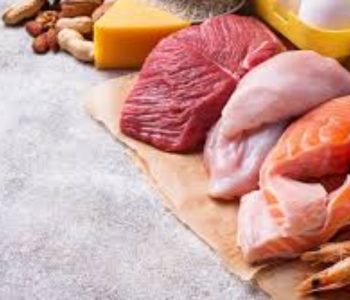Animal proteins, such as meat, fish, eggs, and dairy products, play a crucial role in a balanced diet. These foods are not only rich in high-quality protein but also provide essential amino acids and vital nutrients like iron and calcium.
Nutritional Benefits of Animal Proteins
- Complete Proteins: Animal proteins contain all the essential amino acids that our bodies cannot produce.
- Iron Absorption: The iron in meat and fish is more easily absorbed compared to plant sources.
- Rich Nutrient Profile: Besides protein, animal products are also a source of riboflavin, niacin, and vitamin A.
Challenges of Animal Protein Consumption
- Cost: Animal proteins are often more expensive than plant-based foods, making them less accessible to lower-income families.
- Health Risks: Excessive consumption of saturated fats from animal products can increase the risk of heart disease and obesity.
The Impact of Animal Proteins on Key Industries
Poultry Industry
The poultry industry is a leading source of animal protein, providing both meat and eggs. Recent advancements in nutrition and management practices have significantly enhanced production efficiency.
- Shorter Production Cycles: Broilers now reach market weight faster, with improved feed conversion ratios, benefiting both producers and consumers.
- Environmental Impact: Efficient production translates to sustainability. The poultry industry uses fewer resources, reducing its environmental footprint.
Dairy Industry
The dairy industry is another crucial sector, supplying milk and dairy products rich in calcium, protein, and vitamin D.
- Nutrient Density: Milk is a complete food, especially important for children’s growth and bone health.
- Innovations: The industry is embracing sustainable practices such as improved cattle feed and water conservation techniques to reduce its environmental impact.
Swine Industry
The swine industry is a key contributor to global protein supplies, providing pork, which is rich in protein and other essential nutrients.
- Feed Efficiency: Like poultry, the swine industry has improved feed conversion ratios, making pork production more efficient.
- Mycotoxin Management: The industry also focuses on safety by managing risks like mycotoxins, ensuring that pork remains a safe and healthy option for consumers.
Aquaculture Industry
The aquaculture industry is rapidly growing as a sustainable source of seafood and fish protein. Fish and other aquatic animals are rich in omega-3 fatty acids, vitamins, and minerals that are essential for human health.
- Sustainable Practices: Modern aquaculture adopts sustainable methods, such as recirculating systems and integrated multi-trophic aquaculture (IMTA), to reduce environmental impact.
- Resource Efficiency: Fish have high feed conversion efficiency, meaning they require less feed to produce a kilogram of protein compared to terrestrial animals. This makes aquaculture a more sustainable option for meeting global protein demands.
Conclusion
Animal proteins are vital for global nutrition, providing essential nutrients and supporting industries like poultry, dairy, swine, and aquaculture. By focusing on sustainable practices and consumer education, we can continue to benefit from these resources while minimizing their ecological footprint.
You may also like to read: “Vitamin B12: What is it for, benefits and where can it be found?”
